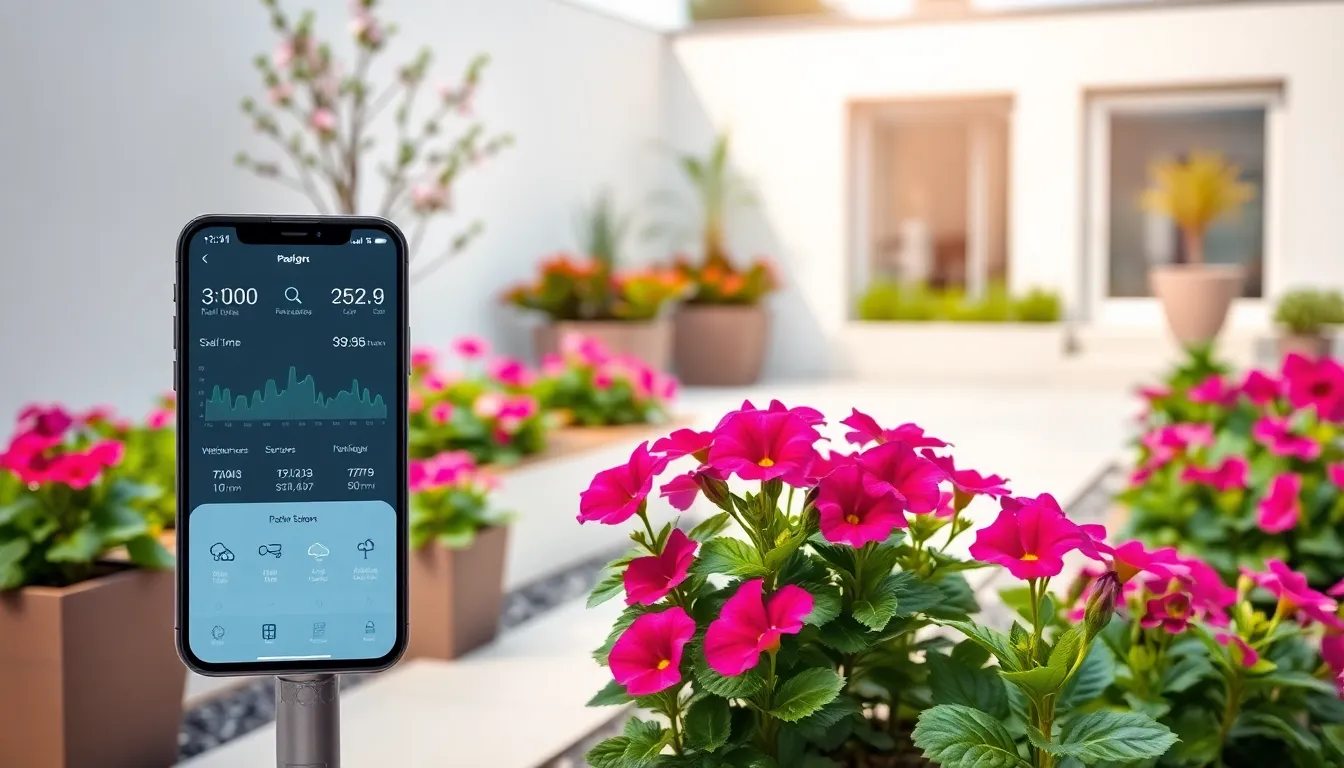Table of Contents
ToggleImagine a world where your garden is as smart as your phone. It knows when it needs water and then just goes ahead and does it. Smart irrigation systems, a modern marvel of technology, transform the way we manage water in our gardens and landscapes. Not only do they save water, but they also make care for your plants a highly efficient and data-driven experience. In this text, we’ll jump into the ins and outs of smart irrigation, how it can revolutionize your outdoor spaces, and why real estate is taking notice of this innovative technology.
Understanding Smart Irrigation Technologies

Smart irrigation technology utilizes sensors, weather data, and mobile applications to optimize water use and enhance plant health. These systems can involve soil moisture sensors that measure the water content in the soil, allowing for precise watering schedules. Also, climate sensors can gauge environmental conditions, ensuring that your plants receive just the right amount of water based on real-time local weather data.
Modern smart irrigation systems often connect to home automation networks. This connectivity means that users can monitor and adjust their irrigation systems right from their phones. Talk about a convenient way to ensure your achingly thirsty petunias aren’t left to wilt under the summer sun. Remote access enables real-time adjustments to watering schedules based on recent rainfall or impending weather changes.
Not to be overlooked, these systems can even incorporate artificial intelligence to analyze data and make independent decisions about when to water. For example, if Monday’s forecast predicts heavy rain, the system will automatically skip watering on that day, conserving both water and your precious time.
Benefits of Smart Irrigation Systems
The advantages of smart irrigation systems are genuinely impressive, starting with their ability to save water. Traditional watering methods often lead to overwatering and evaporation loss. But, smart systems can reduce water usage by up to 50 percent. This conserves a vital resource and can significantly decrease utility bills for homeowners.
Another benefit resides in plant health. By delivering the right amount of water at the right time, these systems promote healthy root systems. Eventually, it can lead to vibrant, flourishing gardens and landscapes. Happy plants? That’s what we’re all about.
Smart irrigation also means less manual labor for homeowners. Imagine no more lugging hoses or dragging out the sprinkler. Instead, users can set up schedules that take care of watering automatically, leaving them more time to chill in their hammocks, just don’t forget the lemonade.
Besides, many modern systems offer features like leak detection. This smart tech alerts homeowners of any leaks or issues, allowing for prompt maintenance and reducing damage to gardens.
Finally, these systems can increase property value for homeowners looking to sell. Future buyers see the added benefit of lower maintenance costs and eco-friendly features, which can make homes with smart irrigation systems more appealing.
Challenges in Implementing Smart Irrigation
Transitioning to smart irrigation is not all rainbows and sunshine. While the technology is friendly, the initial investment can be daunting. Homeowners might find costs associated with purchasing equipment and installation expenses significant. But, looking at it as a long-term investment can often provide financial relief down the line.
Also, technical know-how plays a role. Individuals who aren’t particularly tech-savvy might feel overwhelmed by the features offered by smart systems. That learning curve could deter some prospective users. Thankfully, many brands produce user-friendly systems, providing tutorials and customer support to ease this transition.
Then there’s compatibility. Not all existing systems integrate seamlessly with new smart technologies. Older infrastructure could pose obstacles, requiring further upgrades to fully benefit from smart irrigation. So, homeowners should assess their current systems before making the jump.
Innovative Applications of Smart Irrigation
Smart irrigation technology is an innovator’s playground. One groundbreaking application has emerged with integrated weather monitoring, allowing systems to adapt irrigation schedules effortlessly. With features such as rain sensors, these systems adjust based on local conditions, conserving water and ensuring plants receive optimal moisture.
Urban environments benefit significantly with vertical gardens utilizing smart irrigation. Skyscrapers and smaller residential buildings are incorporating greenery into urban landscapes. Smart irrigation systems maintain these green oases, providing much-needed water while managing city water use efficiently.
Another fascinating application is in agriculture. Smart irrigation systems assist farmers in optimizing crop yields. By analyzing soil moisture levels and applying precise watering, farmers can enhance produce quality while minimizing wastage. This technology plays a critical role in sustainable practices and addresses food security challenges globally.
The Future of Smart Irrigation in Real Estate
The future looks bright for smart irrigation in the realm of real estate. As sustainability becomes increasingly critical to buyers, homes equipped with smart irrigation systems are gaining traction. Developers are keen to enhance property appeal through eco-friendly features.
Investors are also taking notice, often seeking properties low on water usage as part of their green initiatives. Because of this, new constructions may include smart irrigation technologies as standard, rather than optional. Homebuyers looking for added value will certainly appreciate such advancements.
Also, as technology continues evolving, new features will likely emerge. This could change the landscape entirely, making irrigation systems more efficient with minimal intervention required from homeowners. Imagine coming home to a vibrant garden, where every flower and shrub flourishes effortlessly thanks to smart technology.






